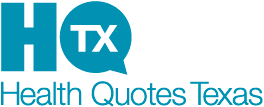Tips for choosing a plan:
- Estimate the number of sick visits you and your dependent use in a year.
Tip: Use the same number of visits that you had the previous year. - Find out actual cost (not co-pay cost) of any regular medication you take.
Tip: Print off a list of all prescriptions filled and their actual cost for the last 18 months on the Medco website. - Find out actual cost of any prescriptions utilized for sickness in the past year.
Tip: If you do not have access to the Medco website, you can contact your pharmacy for a list of prescriptions filled and their actual costs. - Calculate the annual premium cost for each plan offered. Then add the above totals to that premium to find out the average annual cost for each plan.
- Avoid scammers. With the rollout of the ACA, there have already been reports of attempts to defraud consumers. Always double-check the credibility of the marketplace. If you suspect fraud, report immediately to law enforcement officials or the Texas Attorney General's Consumer Protection Division.
Health Plan Basics
Health Maintenance Organizations (HMOs) - Gives consumer access to specific health providers. A primary care physician (PCP) will be selected upon sign up from a network of doctors and women will be able to select an OB/GYN.
Pros:
- Generally lower in up-front costs than other plans.
- Typically have low to no out-of-pocket costs and co-payments.
- Usually the highest level of coverage while using care providers within network.
Cons:
- Typically if you visit hospitals or doctors outside of network then care won't be covered at all.
- Special tests or the need of specialist will have to be referred by the PCP.
Participating Provider Options (PPOs)- Gives consumer access to a network of doctors, hospitals and specialists. You do not have to choose a PCP under this plan.
Pros:
- Consumer has the option of seeking care outside of network.
- A referral to see a specialist isn't typically needed.
- Care from inside the network is usually cheaper.
Cons:
- PPO premiums are typically more expensive than HMO plans.
- Care costs outside of network tend to be higher.
- Unless you are receiving preventative care, there is usually a deductible.
Medical Gap Plans - For people up to age 64 and to be combined with private or group insurance. This supplemental insurance is used to bridge the gap in cost.
Pros:
- Covers out-of-pocket costs that are not under plan coverage.
- Sometimes it is more cost efficient to choose a plan with a higher deductible and pair it with this plan.
Cons:
- Not for those that are currently in bad health.
- If you go to the doctor or hospital a lot, this plan is not for you.
- Also not suggested for those that take a lot of prescription medication.
High-deductible Health Plan (HDHP)- Offers lower premiums with higher deductibles than the average health plan. This coverage is a requirement for having an HSA. These type of plans are beneficial for those that do not visit the doctor or hospital often. It is used to cover unpredicted health issues known as catastrophic events.
Pros:
- Lower premiums.
- Can be paired with an HSA
- With the combination of the two, could be extremely cost-effective.
- Possibility of additional "wellness" benefits.
Cons:
- High deductibles.
- Not for those with preexisting conditions.
- Not for those that require a lot of prescription medication.
Health Savings Accounts (HSAs)- This is a special account owned by the individual and used in conjunction with an HDHP. This is used to save for future health costs and cover out-of-pocket expense.
Pros:
- You can deduct the yearly funded amount of medical expenses off your taxes.
- You don't have to pay for the medical expense immediately.
- You can save receipts and write a check at a later time.
- Could be extremely cost-effective.
- You don't have to use total yearly funds.
- Unused funds will rollover to next year.
- There is no income limit on who may contribute.
Cons:
- You must be covered by an HDHP.
- Must record-keep receipts for proof of qualified health expense.
- Can't be claimed as someone else's dependent on tax return.
How to set up an HSA:
- See if local banks offer an HSA.
- You can set one up online at HSABank.com
- Small setup fee to start.
Federal Exchange Plans- A result of the Affordable Care Act, better known as "Obamacare," everyone will have to have health insurance coverage by 2014, get an exemption, or pay a fee. In order to provide insurance to the uninsured, the "Health Insurance Marketplace" was formed and opened for enrollment as of October 1, 2013. While Texas has opted out of a state-based marketplace, the federal marketplace is open for enrollment until March 31, 2014 at healthcare.gov.
The facts:
- Everyone will have to have health insurance either through an existing plan or through the marketplace.
- Those who cannot afford to buy insurance on their own might be eligible for a subsidy.
- Those that do not have coverage will have to pay a penalty of either 1% of their income or $95 (whichever is higher).
- Parents must also have their children insured or pay the penalty.
- Those who pay the penalty will remain responsible for 100% of their medical costs.
What your insurance must include under the ACA:
- Coverage for outpatient and emergency services.
- Hospitalization.
- Maternity and newborn care.
- Mental health disorders.
- Prescription drugs.
- Rehabilitation services and devices.
- Lab services.
- Preventative and wellness services and chronic disease management.
- Pediatric services.



